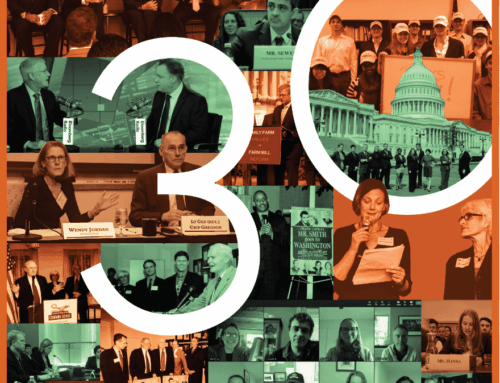Peter Parker, aka Spiderman, was admonished by his Uncle Ben that with great power comes great responsibility. Uncle Sam should give members of Congress and their staffs the same lecture.
A recent Washington Post article noted that four percent of congressional employees owe back taxes, a higher rate than the public at large (three percent of which owe). Although the amount is relatively small by Washington standards – $9.3 million – it presents a potentially big problem. Whether you are there because you were elected or were hired by someone who was elected, working in the Capitol is a great honor. As advisors, drafters, and gatekeepers, staff wield great power over the laws Congress writes.
But service cuts both ways. There is a public trust. And if you help write the laws, you must follow them, too. By not following the tax laws that you wrote, or voted on, you have violated this trust.
Lawmakers and staff have to guard against any exceptionalism in their ranks. Whether it is using their office accounts to lease sweet rides to drive around their district, or abuses like pocketing their excess per diem for foreign travel, these actions are corrosive to our democracy and feed voter cynicism.
To be fair, lawmakers work in a fish bowl. Their every move, whether it is cutting in line or riding in first class instead of coach, is noticed and scrutinized. That’s why some of the abuses, like Rep. Rangel (D-NY), then-Chairman of the tax code writing House Committee on Ways and Means, failing to pay his taxes or using rent-controlled apartments for his office space, are so striking.
But it doesn’t stop there. The public is sick of the pay-to-play that comes from thousands of dollars in campaign contributions turning into millions of earmarked taxpayer dollars. Just yesterday, the formerly high-flying head of an earmark lobbying shop agreed to plead guilty to evading contribution limits to curry favor with lawmakers.
Separately, you have Rep. Waters (D-CA) being scrutinized for pushing for bailout bucks for a bank in which her husband invested and served on its board. Documents point to extensive discussions between the bank and the Congresswoman’s staff.
The defense that technically you did nothing wrong just makes taxpayers roll their eyes. A few years ago, controversy sprung up about an earmark that Rep. Calvert (R-CA) got for an intermodal transit center in Corona – which would have benefited commercial properties he owned nearby. As soon as this became public, Rep. Calvert produced a letter from the ethics committee that said even though the earmark would personally benefit him, as long as it benefited other people too, it wasn’t a conflict. Whether this is ethical or not (while the ethics committee said it was, we beg to differ) it doesn’t look good. In fact, it so obviously doesn’t look good that he went to get pre-clearance from the committee to see if it was kosher. That’s the only reason he had the letter ready to go. But if you have to ask, you probably shouldn’t do it.
You reap what you sow. And with every mini-scandal, every backroom deal, and every abused perk, the public’s cynicism about Congress, and by extension our government, grows. This is not a Democratic or Republican issue. It is about maintaining a vibrant democracy that all citizens can trust.










